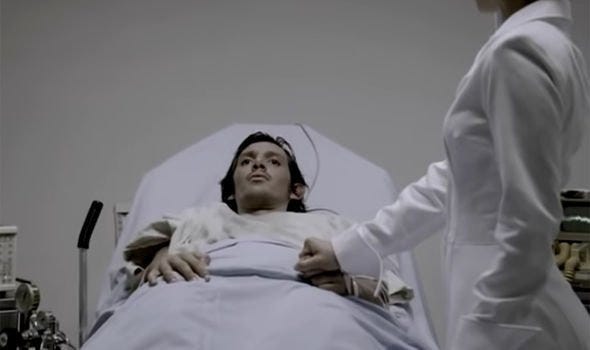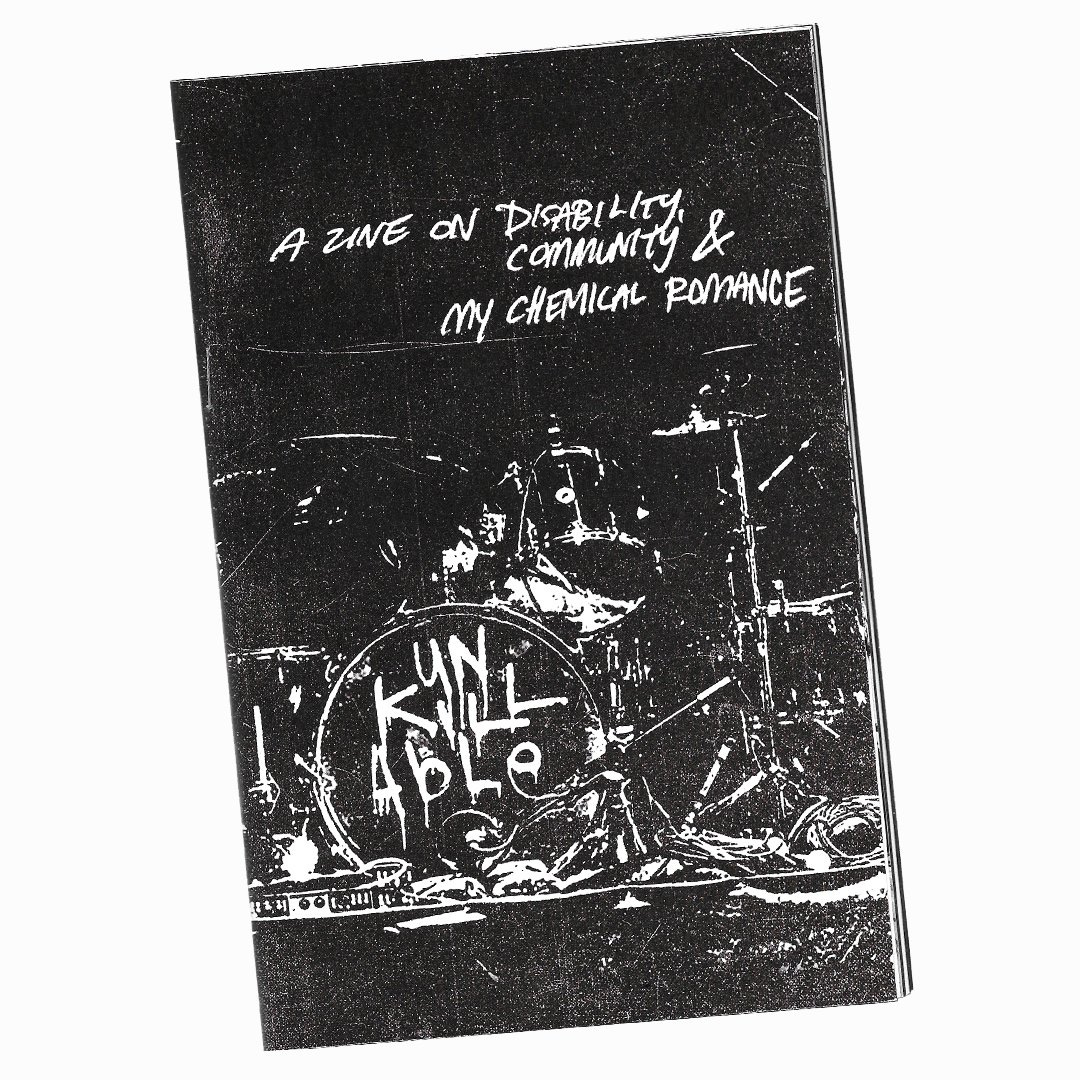RIP Susan Sontag, You Would Have Loved The Black Parade
My Chemical Romance just played The Black Parade in full for the first time since 2007. But this isn't a piece about emo nostalgia, it's about aesthetics
Gerard Way Reads Susan Sontag in a Basement in Jersey: Illness as Metaphor and The Black Parade
This piece was originally published in UNKILLABLE: A Zine on Disability, Community, and My Chemical Romance
Disability is woven into the fabric of My Chemical Romance, whether or not the members themselves identify as disabled. While disability as a label has been personally liberating for me, a big and brightly lit tent that I am eager to invite folks into, for the purposes of this piece, I will try to refrain from speculating on anyone’s potential diagnoses, although many of the band’s members have been open about struggles with mental illness, injuries and chronic pain- in light of which, it would also feel wrong to ignore the influence of disability on the band’s work, especially their lyricism and visual imagery.
The trappings of disability- hospitals, medication, addiction and alienation, appear across all four of My Chemical Romance’s main albums, but are, of course, the most present on their third studio album, The Black Parade. Tracing the death and afterlife of a character known as The Patient, the album focuses heavily on cancer, self medication and depersonalisation. Like so many other teenagers, I latched onto this album with all the ferocity and desperation of youth. While I did not have the language to describe it at 14, I was especially hungry for any kind of depiction of chronic illness that I could relate to. I did not know any other sick teens, and I was barely allowed to watch television. Since I would not be diagnosed or have my own health issues taken remotely seriously by doctors until my 20s, even the vaudevillian antics of Gerard Way being wheeled on stage on a gurney made me feel less alone. And more crucially, while The Patient is a gaunt caricature, not a nuanced portrait of disability by any means, he was still there, conjured up by my favorite rock star, and thrust into the spotlight alongside a cast of other fabulous characters- The Black Parade was more than a way to locate myself and my sick, rebellious body within pop culture, it was a meaningful demonstration that you could use art to take ownership of your own narrative, and embrace your own less-than-ideal circumstances.
There is a well known quote among My Chemical Romance's fans, spoken by Gerard Way, that “It’s okay to be messed up, because there are five other dudes who are just as messed up as you”. While not as eloquent as some of their lyrics, it was a missive I clung to just the same. Perhaps this is less praise of My Chemical Romance, and more a condemnation of our broader culture, but as I rack my memory, I truly believe this was the first time I had been told, even indirectly, that I could be unashamed of my illness, that my body could be truly unfixable and I could still forge a life and an identity.
This is not to say that every disability, or perhaps any disability, should be viewed within the paradigm of fixable vs unfixable, normal versus abnormal. But it was important to me at the time, because so many messages were and still are about “overcoming disability” and miraculous recoveries, and it was becoming clear to me that I was not going to get better, I was going to get worse. In 2006, and with limited internet access, this was what I had to work with: over the counter painkillers, a set of divorced, angry parents shuttling me to various doctors, and Gerard Way in a hospital gown.
Now, in 2023, I have significantly more resources to understand myself and my social and political position as a disabled person. In 2020, during the first full year of the pandemic in the US, once again desperate for ways to understand what was happening in my life, (and coincidentally when I and many other now-adult fans experienced an My Chemical Romance renaissance) I first read Illness as Metaphor by Susan Sontag. A brilliant book, it traces the long use of cancer, and before it tuberculosis, as metaphor, and the ramifications of this on cultural understandings of illness. Her central argument is that we should resist metaphoric thinking about disease, and largely, I agree with her that treating disease as a metaphor, especially for social and political conditions, often results in stigmatization of the disease and the people who experience it. Despite this, her essay starts with its own metaphor, stating that “Illness is the night-side of life, a more onerous citizenship. Everyone who is born holds dual citizenship, in the kingdom of the well and in the kingdom of the sick.”
Ironically, this is a fantastic metaphor for conceptualizing how illness shapes the way we move through and interact with the world. For all its brilliance, the essay fails to examine in depth the liberatory aspects of fantasy; Another brilliant opening line comes to mind, this time by horror writer Shirley Jackson in The Haunting of Hill House. It says that “No live organism can continue for long to exist sanely under conditions of absolute reality; even larks and katydids are supposed, by some, to dream”- Humans need the respite of fantasy, the chance to briefly live other lives when our own seem unbearable.
While the album absolutely does what Sontag condemns, which is to reinforce the link between cancer, death and the macabre through metaphor, it also subverts this trope by starting with the opening tracks of “The End/Dead!”, and finishing with the refrain from” Famous Last Words”, "I am not afraid to keep on living".
Given only the information publicly available about Gerard Way's life, it is very likely that The Patient's story was not his to tell. After all, disability is not a monolith, and one narrative of sickness cannot simply be swapped to tell another. But I am lucky enough to be getting older, and as I am, I’m working to improve my ability to navigate the gray areas that seem to make up the majority of life. Ultimately in my mind, all language, the literal and the metaphorical, is an intricate system of illusion. The Black Parade was the dream I needed, a metaphorical, metaphysical resting place, that facilitated my own transition to the kingdom of the sick.
Submit to Cripple Punk Mag at merlin.sabal13@gmail.com. Seeking: Essays, criticism, news and reviews, literary nonfiction, fiction, rants and raves, comics, and beyond.






